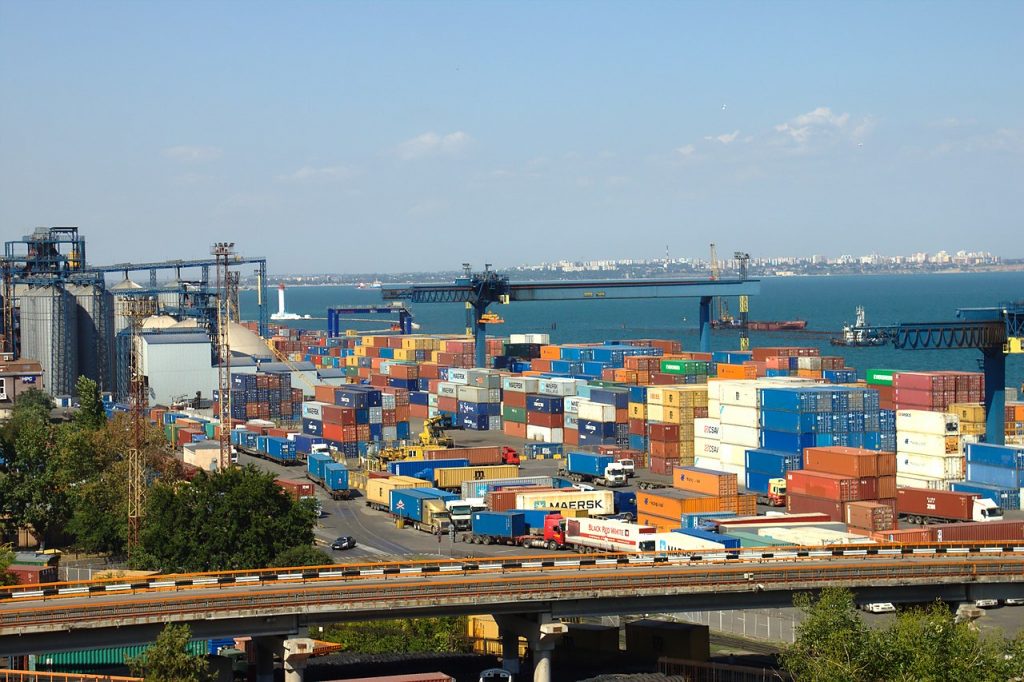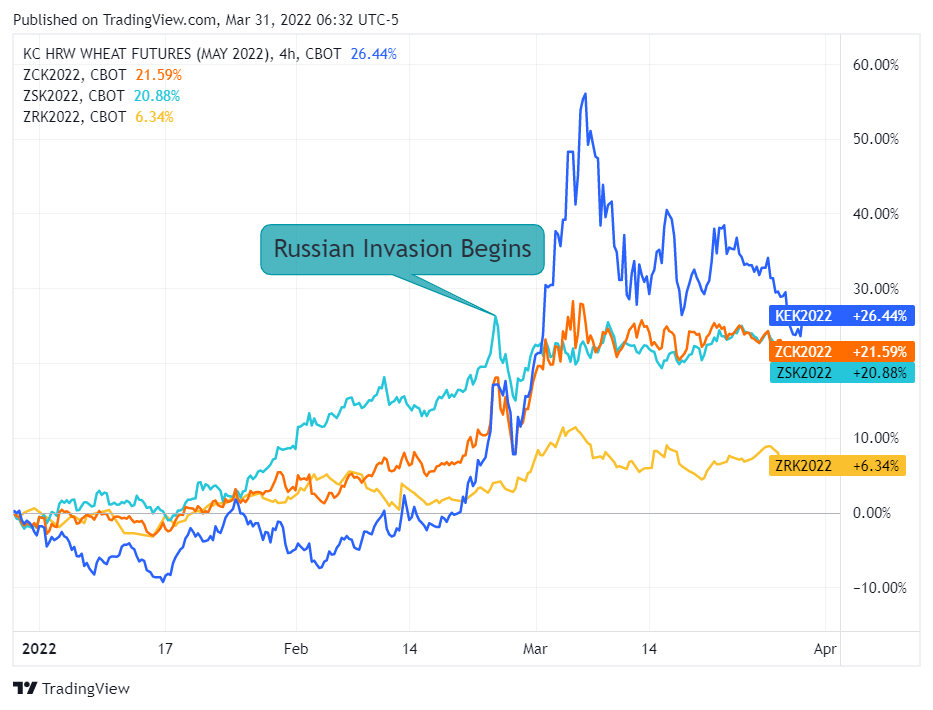Vladamir Putin’s invasion of Ukraine is impacting food prices and leading to concerns over global food security. Food prices were rising sharply before the invasion, largely to due rising energy prices but it is now driving fuel, fertiliser, and food prices even higher.
Ukraine’s new agriculture minister Mykola Solskyi has said that Ukraine’s ability to export grains was getting worse by the day and would only improve if the war with Russia ends. Solskyi said Ukraine, one of the world’s top grain producers, would normally be exporting 4-5 million tonnes of grain per month. A volume that has fallen to just a few hundred thousand tonnes.
“The impact (on global markets) is direct, dramatic, and large. And it continues. Every day the situation will become more and more difficult,”. Mykola Solskyi. Ukrainian Agricultre Minister.
Ukraine claims to have enough stocks to meet its needs for two years but will potentially lose $1.5 billion a month in farming exports due to the invasion. However, the country has begun exporting some grain through the EU via rail and is also in discussion about using the Romanian Black Sea port of Constanta.
The Black Sea Region
The Black Sea region is a key area for the global grain trade. Russia produces around 13% of global barley and Ukraine 5% (2020/21 crop). The two countries account for 30% of global barley exports. Further cost increases will cut margins for operators, raise prices for consumers, or a combination of both.

Russia and Ukraine together account for 29% of global wheat exports and 19% of corn exports. Together, they provide 19% of the world’s barley supply, 14% of wheat, and 4% of maize, making up more than one-third of global cereal exports. They are also lead suppliers of rapeseed and account for 52% of the world’s sunflower oil export market.
Prices Rising
The FAO Food Price Index averaged 140.7 points in February, up 3.9% from January, 20.7% above its level a year earlier, and 3.1 points higher than that reached in February 2011. Wheat prices are now at a 40 year high, with May 22 futures for wheat 26% up on the start of the year, corn 22% up, soybeans 21% up, and rice 6% up.

Wheat is a staple food for over 35% of the world’s population, and the current conflict will result in a sudden and steep reduction in wheat exports from both Russia and Ukraine. It is still unclear whether other exporters are able to fill this gap. Wheat inventories are already running low in Canada, and exports from the United States, Argentina, and other countries are likely to be limited. Fertilizer producers are preparing to double their prices to keep factories open due to the importance of Russia and Belarus as key fertiliser producers.
A Global Impact on Food Security
The impact of rising prices will be felt beyond Europe the UN is currently warning that food prices could rise by up to 20% as a result of the conflict. Economic restrictions imposed on Russia are also impacting agribusiness with restrictions on exports of agricultural commodities and reduced internal demand for imported food products. The war could have a ripple effect on energy costs. Consumers will look to cut spending on non-essentials such as travel and entertainment, save on utilities and eventually try to cut grocery costs.
Food price spikes from 2008 to 2012 led to political unrest and the Arab Spring. Today there is clear potential for social and political unrest and even more conflict in food-insecure countries. The risk is most evident in countries such as Yemen, the Arab world’s poorest, where war since 2014 has driven one of the world’s worst humanitarian crises. Food prices there have doubled since last year and the fact that Ukraine supplies nearly a third of Yemen’s wheat imports has heightened fears of a deepening famine.
The war is also threatening a catastrophe in Africa. Wheat imports account for about 90% of Africa’s $4 billion trade with Russia and nearly half of the continent’s $4.5 billion trade with Ukraine. Sanctions against Russia have disrupted grain shipments at a time when global stockpiles were already tight.
Implications for Agribusiness and the Food Chain
Higher input prices and rising energy costs will put pressure on-farm incomes and will influence planting decisions in the coming weeks, however, producers in some parts of the world such as South America and Australia will look to increase production to make up for supply shortfalls. In the long run, this may lead to a move to more low-input systems, along with increased investment in technology. Food manufacturers will feel the impact of higher commodity prices and will need to find ways of cutting costs. Consumers are already hit by rising domestic energy costs cutting back on spending on high-value food products due to increased prices and reduced economic growth.
A shift back to food production
Even if the conflict were to end tomorrow, the damage to infrastructure along with the political ramifications will have long-term implications. This could include a return to policies designed to promote food production. For example, the African Development Bank has announced it is aiming to raise $1 billion to boost the production of wheat and other crops in Africa. The European Commission has delayed publishing proposals on sustainable farming and nature. The war has led some EU countries to start questioning the European Union’s environmental push.
The war is already having a significant impact on agricultural markets, trade and the economy at large which are likely to have long-term impacts throughout food supply chains.

